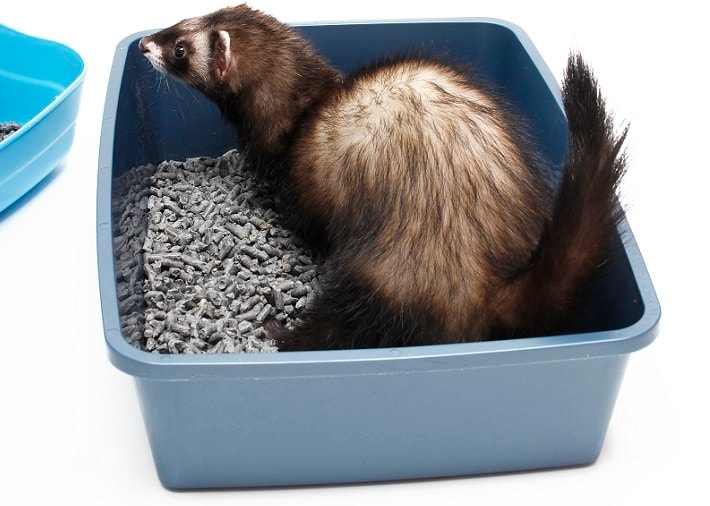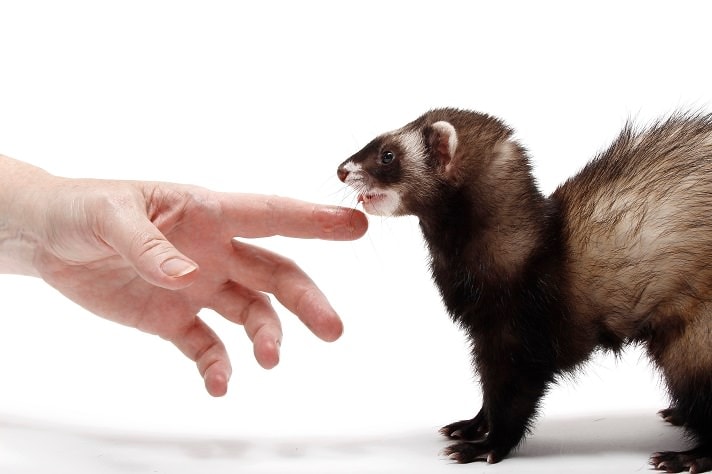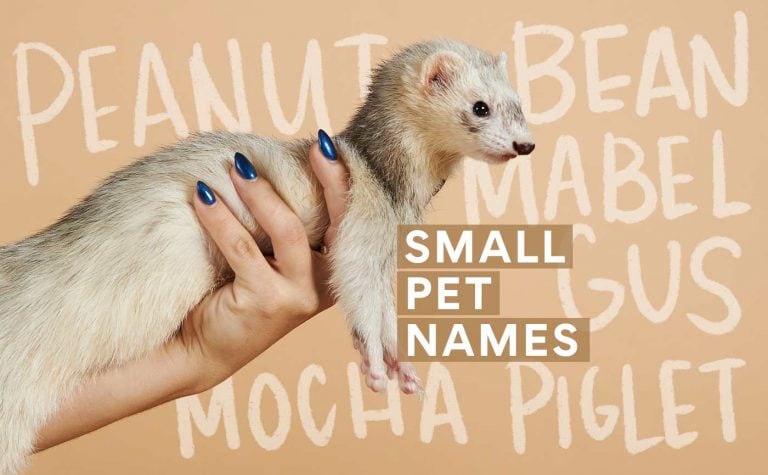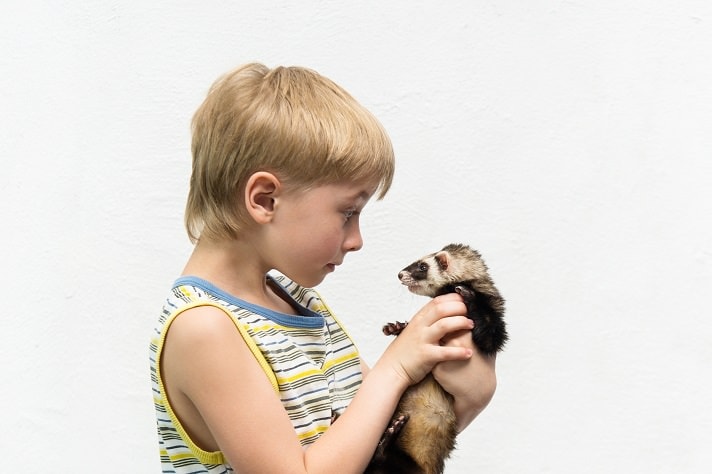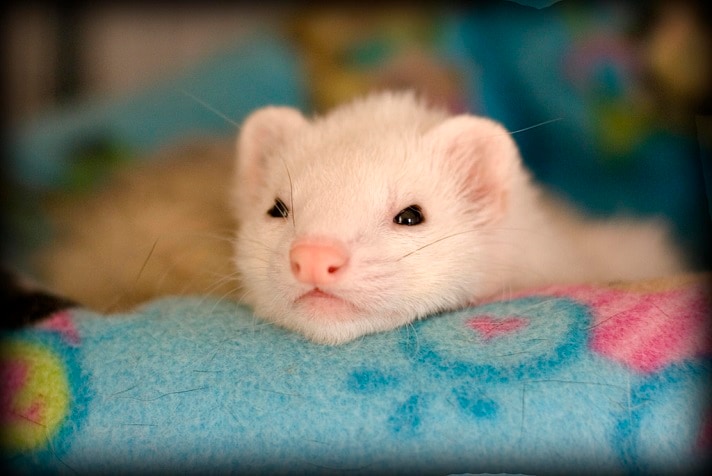If only they could speak. How many times have you thought that as you wondered what was going on in your ferret’s mind? Actually ferrets do speak! But you have to learn to listen with your eyes and not just your ears. Ferrets can tell us a lot about their moods and interests if we watch their body language. Here are some common emotions and how a ferret relays them to us and to other ferrets.
Excited/ Happy
When a ferret is happy or excited in a positive way, it holds its head up and is eager to interact with you or other ferrets. Your ferret may hop around in excitement doing the Weasel War Dance or other silly antics. Your ferret is enjoying life and isn’t afraid to let everyone know it.
Excited/ Curious
A ferret that is excited and curious about something generally holds its nose to the ground and runs around sniffing things. Maybe a mouse or another pet ran through the room or maybe you tracked in a scent on your shoes, such as dirt, grass or wet leaves. This behavior is often accompanied by a “dooking” sound. The more excited your ferret is, the louder and faster it makes the dooking noise. Some ferrets also swish their tails back and forth very rapidly when they are excited. Not all ferrets do this, but it is a sight to see if they do!
Wants To Play
A ferret that wants to play may show this in several ways and not always in ways that you appreciate! One common way that a ferret indicates that it wants to play is by running up to you and then backing away in a “catch me if you can!” manner. If this doesn’t work, and if your ferret is very persistent, it may resort to a nip on your shoe, pant leg or ankle. Your ferret is letting you know that it wants your attention right now!
To avoid reinforcing the bad behavior, try to appease your ferret’s request before it gets to the nipping stage or try to ignore the nipping so your ferret learns that you won’t respond to this behavior. If your ferret continues to nip and you can no longer ignore it, pick your ferret up and put it back in its cage until you are done with whatever you were doing. When you are done with your task, be sure to go back to your ferret and let it out and spend some time with it. That way your ferret will learn that you are willing to play with it, but not when it misbehaves.
Wants Something
This is a nonspecific request that usually manifests itself as a persistent stare. Your ferret will lock its eyes on you and you will have to figure out what it wants. Sometimes you can figure it out if the ferret is standing and staring in a certain spot. If your ferret is near the cabinet where you store its treats, then you can probably assume that it wants a snack. If your ferret is standing by its cage door, then it may want in or out. Use your skills of observation to figure out what your ferret may want.
Fearful/ Anxious
A ferret that is fearful or anxious about something will usually cower down and look sideways or over its shoulder at the thing that is upsetting it. Your ferret is in a “fight or flight” mode. Your ferret may also hiss while doing this to vocalize that it is upset. Hissing also can be just an indication that your ferret doesn’t like something; this means that hissing by itself is not necessarily an indicator of fear.
Fear
A ferret that is truly afraid generally runs and hides, if it can. If your ferret is startled by a loud noise or fast movement, it may dash under the nearest sofa, chair or bed. If it doesn’t sense any further attack, it may peek out to see if the danger is gone or if something else was the target of the supposed attacker. A ferret that is truly afraid may also shriek as it seeks refuge.
Hunger/ Thirst
A ferret that is hungry or thirsty generally starts playing with its empty food or water dish. Your ferret may push the bowls around or dig at them. Your ferret may also look at the bowls and then at you and then back to the bowls several times to drop you a hint. Hopefully, you are on the ball and don’t let it go without sustenance for any length of time. If your ferret is playing with its food dish or water bowl and there is food in there, then your ferret is telling you that it is bored.
Sick
Ferrets that are sick or in pain often squint their eyes and keep their bodies low to the ground. They are not very active and sleep a lot. If your ferret is not eating, drinking or pooping, or if it gags or vomits, then get it to your veterinarian right away. Ferrets are stoic little animals and often hide pain so that others don’t think they are weak. Observing how your ferret acts normally can help you determine when it is sick or if something is amiss.
Interacting with your ferret can be a lot more rewarding when you understand its body language. Think of it as a secret code between you and your pet. And when someone asks, “I wonder what your ferret is thinking?” you can be sure to let them know!
By: Mary Van Dahm
Featured Image: Ferret Outdoors/Shutterstock.com
Share:


